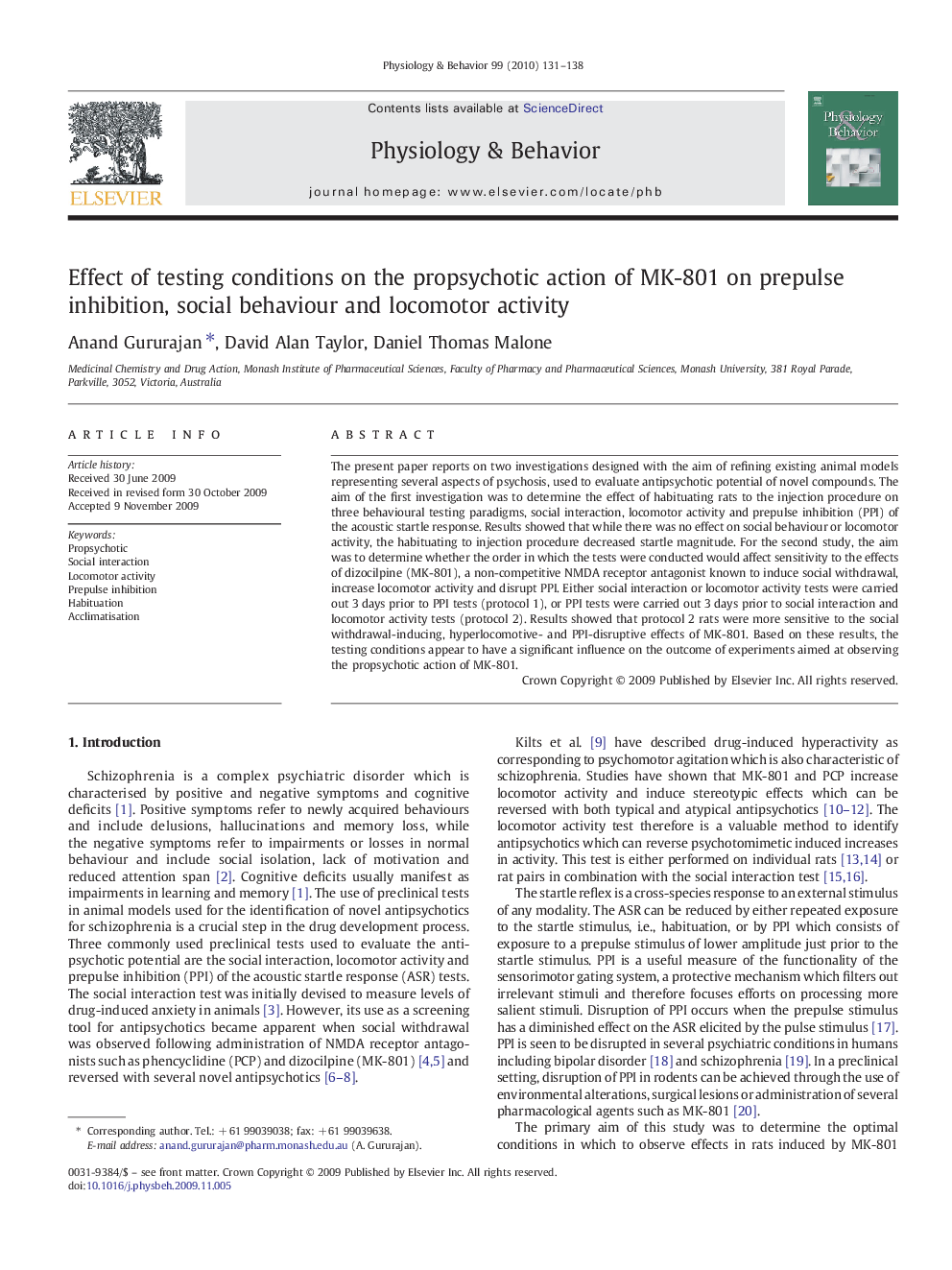| Article ID | Journal | Published Year | Pages | File Type |
|---|---|---|---|---|
| 2845203 | Physiology & Behavior | 2010 | 8 Pages |
Abstract
The present paper reports on two investigations designed with the aim of refining existing animal models representing several aspects of psychosis, used to evaluate antipsychotic potential of novel compounds. The aim of the first investigation was to determine the effect of habituating rats to the injection procedure on three behavioural testing paradigms, social interaction, locomotor activity and prepulse inhibition (PPI) of the acoustic startle response. Results showed that while there was no effect on social behaviour or locomotor activity, the habituating to injection procedure decreased startle magnitude. For the second study, the aim was to determine whether the order in which the tests were conducted would affect sensitivity to the effects of dizocilpine (MK-801), a non-competitive NMDA receptor antagonist known to induce social withdrawal, increase locomotor activity and disrupt PPI. Either social interaction or locomotor activity tests were carried out 3Â days prior to PPI tests (protocol 1), or PPI tests were carried out 3Â days prior to social interaction and locomotor activity tests (protocol 2). Results showed that protocol 2 rats were more sensitive to the social withdrawal-inducing, hyperlocomotive- and PPI-disruptive effects of MK-801. Based on these results, the testing conditions appear to have a significant influence on the outcome of experiments aimed at observing the propsychotic action of MK-801.
Related Topics
Life Sciences
Biochemistry, Genetics and Molecular Biology
Physiology
Authors
Anand Gururajan, David Alan Taylor, Daniel Thomas Malone,
